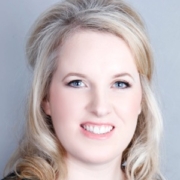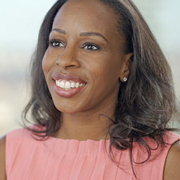Op-Ed: How Seed Crowdfunding is Unleashing Female Entrepreneurial Potential
Guest contributed by Aoife Flood
I recently had the privilege of being part of an exciting PwC research project undertaken in collaboration with The Crowdfunding Centre culminating in the release of our Women Unbound: Unleashing female entrepreneurial potential report.
The report explores the experience of women in achieving finance raising success through seed crowdfunding compared with more traditional finance raising routes and brings to the fore a lot of powerful and scary insights and opportunities. For example, while challenges like the gender leadership gap and the gender pay gap receive widespread media attention, the barriers that female-led businesses and entrepreneurs face in accessing finance have been much less visibly reported. For me personally being part of this research process was certainly somewhat of a rude awakening.
The fact is most decision makers in the venture capital industry are male, and research shows that male entrepreneurs are 86% more likely to be venture capital funded than their female counterparts, and 59% more likely to secure angel investment. Meanwhile, a $300 billion financing gap exists globally for formal, women-owned small businesses, and 70% of women-owned small and medium sized enterprises have inadequate or no access to financial services.
One thing is clear, female entrepreneurs receive less than male entrepreneurs through traditional funding channels and this funding gap is a missed opportunity. Investing in or supporting women-led business has the potential to deliver some of the highest-returns – for investors and societies. Take for example the UK, if they could match US levels of female entrepreneurship they could potentially add £23 billion gross value add to their economy.
What the data in this Women unbound report shows clearly is that when women choose to access crowdfunding they are more than capable – and very often more capable than men. Thanks to crowdfunding, female entrepreneurs can now access the market directly – and this makes a huge difference because when they do, female crowdfunders are 32% more successful than their male counterparts.
The report analysed data from over 450,000 seed crowdfunding campaigns, from nine of the largest crowdfunding platforms globally over a two year period.
What the analysis told us is that men clearly crowdfund more than women, 72% of crowdfunders globally were male compared with 28% who were women. Yet, globally, women are more successful at crowdfunding than men: 22% of campaigns led by a women reached their target, compared to 17% of those led by men. And this is not a collective anomaly, women-led campaigns performed better (in terms of securing their funding goals) than campaigns led by men when we segregated the data for every sector and every territory.
Even in what are considered more masculine sectors, for example technology where just one in every ten crowdfunders is female, 13% of women were successful in achieving their funding goal compared to just 10% of men.
So despite their clear underrepresentation, women are more successful at crowdfunding than men. But why is this?
The main factor seems to be because crowdfunding attracts, enables and empowers far more female decision makers as project backers. In essence, just like the dominance of male representation in traditional financing channels can create barriers for women, the more gender-level playing field of the crowd provides one explanation for why women are more likely to succeed at crowdfunding than men.
Female crowdfunders also tend to use more emotional and inclusive language in their videos and pitch descriptions than men. This language is more appealing both to female and to male backers and positively correlated to funding success. While the use of business language, the style typically favoured by male crowdfunders, has been shown to be negatively correlated with money raised irrespective of what product or service is being pitched.
Yet, while women are outperforming men in achieving their funding targets across the board, the fact remains that significantly more men are crowdfunding than women, and as result, men raise substantially more finance via this channel. Men are also more ambitious in establishing higher funding goals than their female counterparts and we see them dominate in the highest funded campaigns by sector.
In fact, while there were 63 campaigns that raised over $1 million, only seven of these were led by women (11%), with the most funded campaign created by a woman placing number 18 on the list. However, progress is being made, 2014 data illustrates that only 7% of campaigns raising over $1million were led by women, and the most funded campaign created by a woman placed 37 on the list. On another positive note, on average female-led campaigns receive 5% more per individual pledge globally than male-led campaigns.
Despite this, significant opportunity still remains for women to become more active and represented in crowdfunding and to be more ambitious when establishing their finance raising goals.
I truly hope that the success of female crowdfunders highlighted in this report inspires and motivates more budding and established female entrepreneurs to explore crowdfunding.
Overall, the findings of our Women unbound report pose a strong challenge to existing entrepreneurial and business norms by seriously questioning whether there are deep-rooted biases that are preventing greater access to funding by female entrepreneurs. It is extremely positive to see that the growth and global reach of seed crowdfunding presents several major opportunities, each with the potential for major social and economic impact. Including the understanding and acceptance that seed crowdfunding is now a well-established environment through which women can thrive.
Learn more about these opportunities by reading our Women unbound report or visit our data explorer to check out the geographical and sector crowdfunding trends for yourself
Contributed by Aoife Flood. Based in Dublin, Ireland, Aoife is Senior Manager of the Global Diversity and Inclusion Programme Office at PricewaterhouseCoopers International Limited. A version of this op-ed was originally published in PwC’s Gender Agenda Blog.






